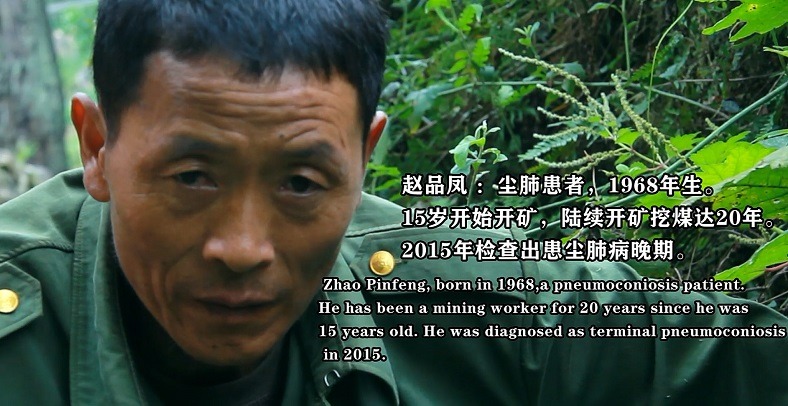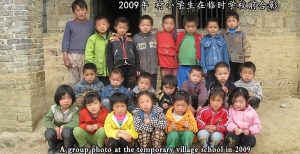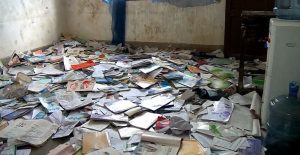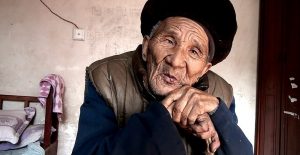Last Updated on February 20, 2022
What’s more ridiculous is that while the government is making a huge TV series called “In the Name of the People” to show its determination to fight corruption, it can’t tolerate a documentary that simply shows local governments doing nothing. SHAME ON YOU!
Guang Yan Xia Mo
We translate audiences’ reviews about issues presented in the film into English when possible. In this way, you can take a look at what local people think about these issues and have in-depth understanding about them. The number besides the reviewer represents how many upvotes a comment/review has received.
During the ravages of COVID-19, this brave film about the real world became an instant hit in China as it met people’s need to know the truth. Read articles from The Economist, South China Morning Post, and Sixth Tone to learn why this film was free to watch and the development of Chinese independent films.
If you want to support Director Jiang, please feel free to purchase. You can also take a look at Director Jiang’s works.
Short Comments
The director follows people who want to watch his film on Douban and sends private message to provide link for viewing. What has our documentary been forced into? The film has no showmanship. The director hides behind the camera as the family member of those being recorded and films honestly and bravely. I don’t want to say more. I hope you can see it in person.
-Ku Yin Liao (2739)
This is my new film shooting my parents and family as many relatives in my hometown suffer from pneumoconiosis. I can’t show or distribute this film in public, so I share the download link privately. Hope people can more pay attention to the occupational prevention of pneumoconiosis to improve the reimbursement rate of pneumoconiosis patients. Hope there aren’t so many families being impoverished by illness.
–Jiang Nengjie, director of this film (2177)
We don’t mean to say bad words. We just want to speak the truth.
-Mu Lan (2120)
In fact, the documentary’s short-lived popularity also reflects the problems of independent documentaries in China. No one wants to watch, it’s hard to get public projection permit, and there’s no money to be made. This is an art in itself. Film is art, so is making a film. There are also Chinese contemporary documentary directors like the director of the film who never give up. I hope Chinese contemporary documentaries will be around for a long time.
-Jing Ge (1431)
The poverty alleviation index has become a political achievement. The Chinese dream has nothing to do with them.
-Geng Nan De Nan Fang (1052)
The government burned the miners’ homes in the name of legality while paying to cover up the mine disaster. On one hand, there is the precise anti-poverty campaign on the radio. On the other hand, workers with terminal pneumoconiosis who struggle even to get upstairs, get less than 950RMB a year. What’s more ridiculous is that while the government is making a huge TV series called “In the Name of the People” to show its determination to fight corruption, it can’t tolerate a documentary that simply shows local governments doing nothing. SHAME ON YOU!
-Guang Yan Xia Mo (1024)
The most authentic film in China is called “documentary”.
-Heng Heng.floweray (937)
The protection-fee-style rectification a decade ago leads to an ambulance that wouldn’t come in ten years.
-RK Zheng Zhuan (837)
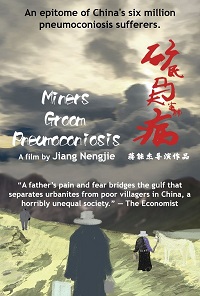
What I hate about those grand narratives is how many individual fates they cover, and how many hymns they dedicate to the empty concept. In the second half of the documentary, this sense of fragmentation is everywhere. It is this sense of fragmentation that has narrowed the space for public opinion and made people talk about positions rather than facts. It even takes courage to speak up for the minority group. Thanks to the director and other crew. China should have such documentaries and needs such documentaries.
-Yun-setsuna (451)
The people at the bottom class in China are clearly suffering.
-Qi (133)
Think of Lou Ye‘s Weibo again. “Don’t be afraid of the movie! It’s not that scary, and it’s not that important. If a country or regime is frightened by the movies, it’s not because they’re too strong, it’s because they’re too weak.”
-ONE (111)
- Miners watch Voice of America.
- The officials spend hush money if there’s a mine accident, and the mine bosses swallow most of the money.
- The government doesn’t give reimbursement to the tuberculosis that pneumoconiosis causes.
- The officials say poverty alleviation but the locals don’t carry out.
- The local subsistence allowance is 950 yuan per person per year.
- No news reporters would report it.
- Ambulances simply don’t come when a patient is critically ill.
- It is a tragedy for the whole society that this kind of film can’t get the permit for public projection.
- Fuck you government!
-Wu Fa Ting Zhi Huan Xiang (107)
Source: Douban
Record the Truth and Speak for the Suffering
Current Status of Pneumoconiosis in China
Pneumoconiosis is a typical occupational disease caused by long-term inhalation of dust. Once contracted, there is no cure.
There are more than 11,000 coal mines and 5.8 million coal miners in China. The number of workers suffering from pneumoconiosis due to mining is even greater.
Pneumoconiosis belongs to occupational disease, and patients can’t take the reimbursement of New Rural Co-operative Medical Scheme. However, 90 percent of pneumoconiosis patients belong to illegal workers. There is no employee health insurance, and mining claims is a fantasy.
There are the loss of the labor force, the lack of economic security, and high medical costs. Therefore, the migrant workers who originally go up the mountain mining to support family for a better life can only be fated to die.
Unstoppable Urbanization
This is the epitome of all workers with pneumoconiosis in China. Behind the scenes is China’s rapidly developing economy and urbanization.
During the process of urbanization, thousands of migrant workers followed the labor contractors into the cities. They work in industries that provide security and convenience to the masses, and their efforts constitute the “foundation” of cities. As cities grow, migrant workers move to the next city that needs them. However, the dust melted into their lungs, eating away at their remaining oxygen.
The collapse of illegal mining sent the young to the cities, while the old who could afford it remained in the countryside for the rest of their lives. This is an irreversible trend in urban and rural development.
The Lament of Pneumoconiosis Patients
On top of the trend, there is another group that can’t be accommodated – people with pneumoconiosis.
To this day, there is still a large base of pneumoconiosis patients in China. However, the news about pneumoconiosis patients didn’t splash much.
In 2009, migrant worker Zhang Haichao had his lungs tested. The pneumoconiosis patient Yan Qing Hai, who self-taught law to fight lawsuit, passed away in 2014. In 2015, Lao Zhao, a migrant worker with pneumoconiosis, modified a compressed oxygen tube to maintain breathing……The news has been drowned out.
In 2018, doctor Chen Jingyu, who specializes in treating pneumoconiosis patients in a hospital in Wuxi, proposed to separate the diagnosis of pneumoconiosis from the diagnosis of occupational diseases at the Two Sessions (Lianghui), so as to improve the diagnosis and treatment efficiency of pneumoconiosis patients.
There is still a long way to go from advice to policy. How many pneumoconiosis patients can wait until the last minute before the oxygen runs out?
Felmolly (216)
If you want to support Director Jiang, please feel free to purchase. You can also take a look at Director Jiang’s works.
Documentaries Should Be More Than Touching
According to statistics, pneumoconiosis afflicts as many as 9 million people in China. Besides, it causes a direct economic loss of 8 billion yuan to the country every year. These have become serious social problems. Behind the numbers are one miserable family after another.
Similarly, in the third episode of the second season of the documentary “Life Matters”, “the patient with pneumoconiosis” was featured in the camera. The Lung Transplantation Center of Wuxi People’s Hospital has patients from all over the country. They were coal miners, asbestos workers, gold miners, welders. The camera crew spent more than 200 days in the hospital, witnessing both the pain and the hope. Lung transplants became the only hope for people with severe pneumoconiosis. However, only a few dozen people receive successful lung transplants each year.
The physical assault gives the patient the most direct feedback, and the mental torture is the most fatal blow to the patient. Jiang Nengjie used his camera lens to record the stories happening around him. There is not much we ordinary people can do. Reaching out and remembering it may be the best option.
Bu San (70)
Life Is Labor, Death Is Rest
The vast majority of viewers, even as they sit in front of the screen, are more or less apprehensive, constantly worrying about a ceiling, a landslide or the closure of a mine. It seems these farmers have become so numb to life that life and death are not uncommon. But gradually I understand that the people who can do such an extremely dangerous job and are willing to lay down their lives to support family, are not numb themselves. They can only make a living by doing this kind of hard and tiring work at the risk of crime and their lives. They are an anomaly of the status quo.
People Out of Step With the Times
The announcer blares the news of the new meeting on the radio. The miners are suffering from pneumoconiosis and unable to seek medical advice. It’s a slap in the face, no doubt. We can’t help reflecting in front of the screen. In this era of economic and cultural juggernaut, what do you do with those who are left behind?
They live as hard as they can, so certain vices, such as drug use and prostitution, do not seem like a monster in their mouths. Camera cuts do not give us the full picture of these people’s lives, but they do give us a glimpse of the hard, low-level life. At least I will no longer sit back and think poverty is the result of laziness. We can be as tolerant, compassionate and kind as possible, and allow the desperate to exist.
Not everyone can end up like Xiao Liu, working as a delivery man in the city and breaking away from the mining past. Because of the intensification of internalization, not all migrant workers can work as delivery workers, and not all migrant workers can get the right job opportunities. This internal friction will continue for a certain period of time, and others will be forced to do other high-risk work. It is not so much individual cruelty as the collective suffering of six million pneumoconiosis patients.
Qiong Qiong Xuan Tu (40)
The Silent Death Is the Worst
Watching the movie, my biggest feeling is a kind of “silent death”. Back in the mining scene of 2011, in every conversation the miners had about the mine accident, the individual death was associated with the money words “how many millions”. They calmly say this seemingly unrelated accident, but in fact their hearts are more fear. “Who’s next?” Their fear stems from the fact that all production systems are not regulated. But who can hear their fears? The indifference of business and government is chilling.
The Value of Life
If the rest of Zhao Pinfeng’s life since suffering from pneumoconiosis is “meaningless” to live. So when people’s death in mining accidents are converted into money figures, does that mean their deaths have an “economic value”?
In this age of materialism, if emotion and morality are separated, their death is of economic value. From the perspective of the public choice theory, in the coal industry, the mine owners, miners and government officials are all economically rational people seeking the maximization of interests. I’m sure every miner knows full well that when they signed the contract of life and death with the owner of the coal mine, they had already sold themselves. Industry, civilization, consumption, markets, prosperity… These beautiful words are behind the flow of blood and sweat. And who is responsible? Are miners responsible for their lives? Who’s going to mine?
Coal mines are only in the news when there are explosions, collapses and dead people. These eye-catching reports occasionally shock the world, reminding people on the ground that there is such a group of underground people. Coal is our fossil fuel, which is relevant to everyone on earth. When people enjoy this prosperous world, can we look down at the foot of the people? The individual is more like gravel, washed away by the tide of the times and left with nothing. Each of us is an individual, but if we are indifferent to each other, I’m afraid the world will only have opposite emotions.
The Contemporary Significance of Documentaries
I really appreciate the director’s insistence on speaking up for a small segment of society and putting their lives in front of people. If there is enough propagation force, then their group will get more social attention. It’s a pity that nowadays, non-mainstream documentaries are like propagandists in the dark, and marginal people become a threat to society. Very funny. Documentary is the next millennium memo. But a hundred years later, looking back at these videos, history is no longer relevant. It’s sad that such documentaries are not valued in the contemporary sense.
Tai Yang Shen (17)

